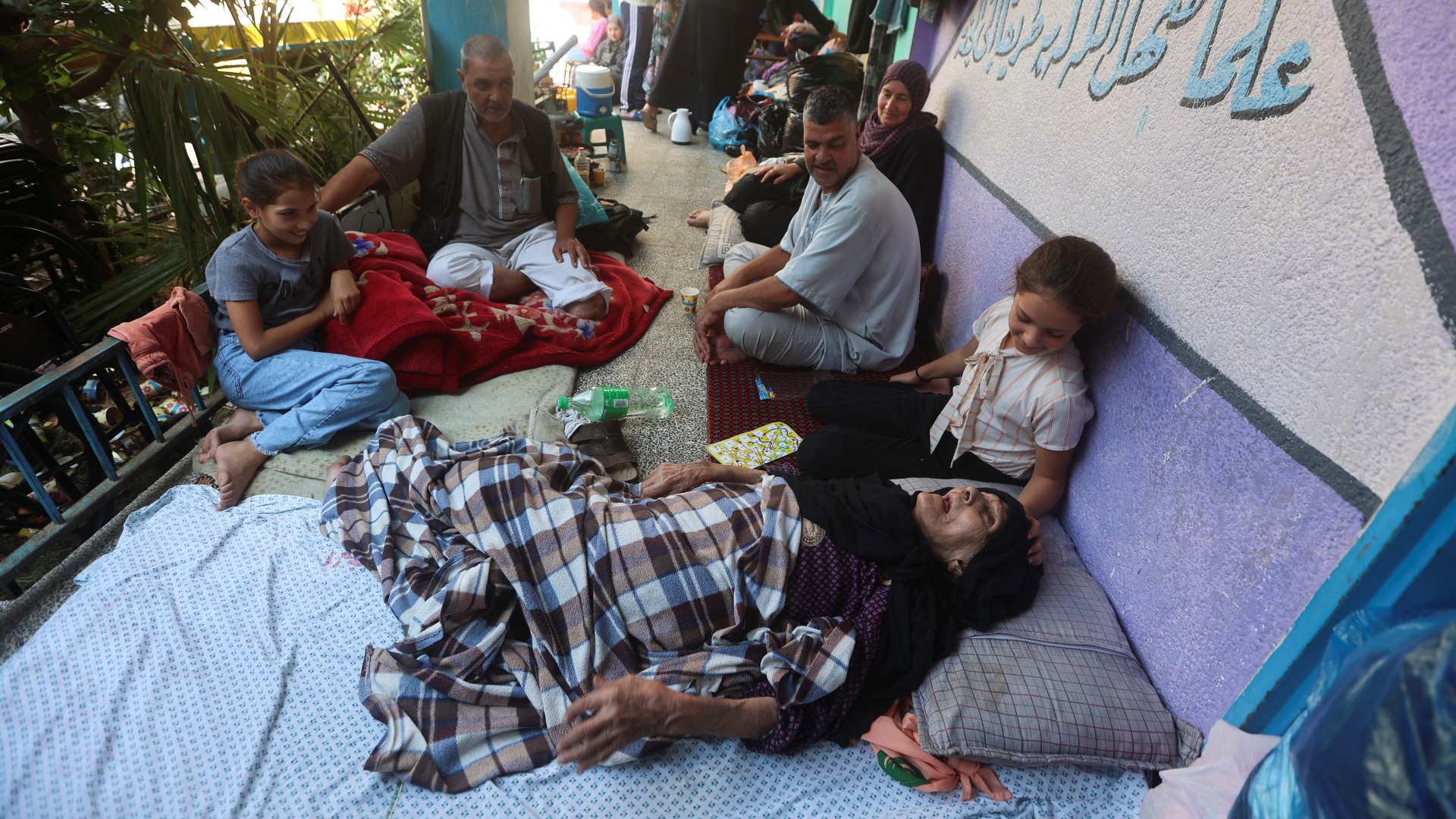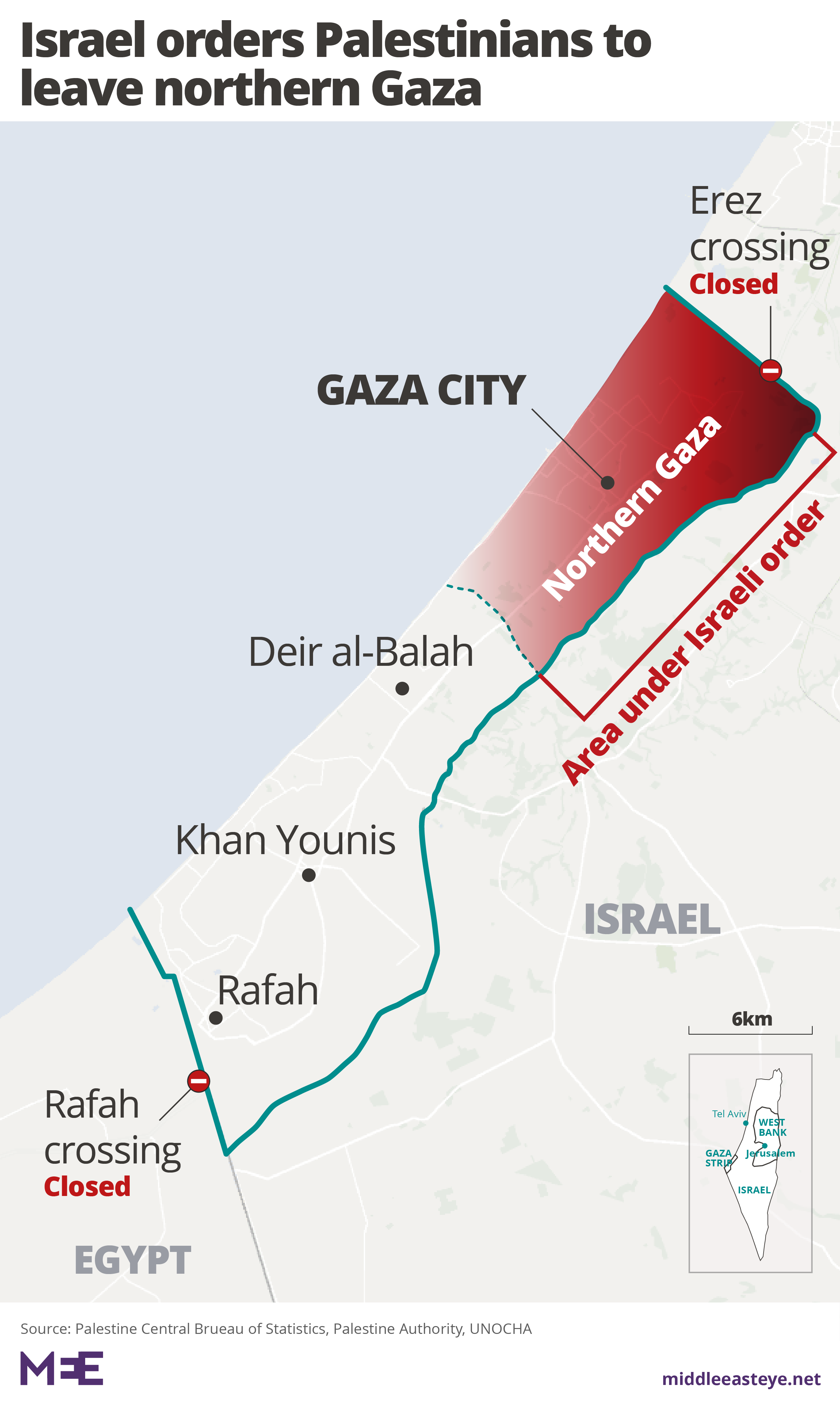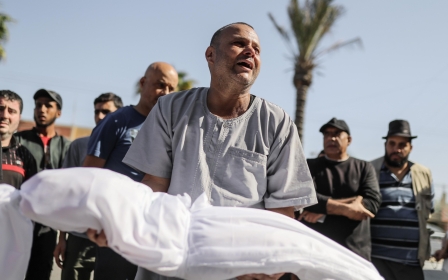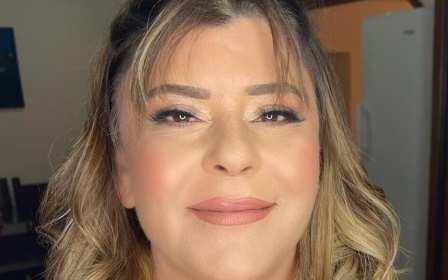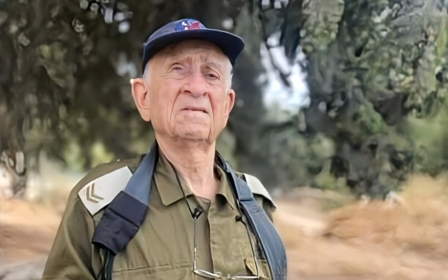Israel-Palestine war: Starving Palestinians shelter from bombs in UN schools
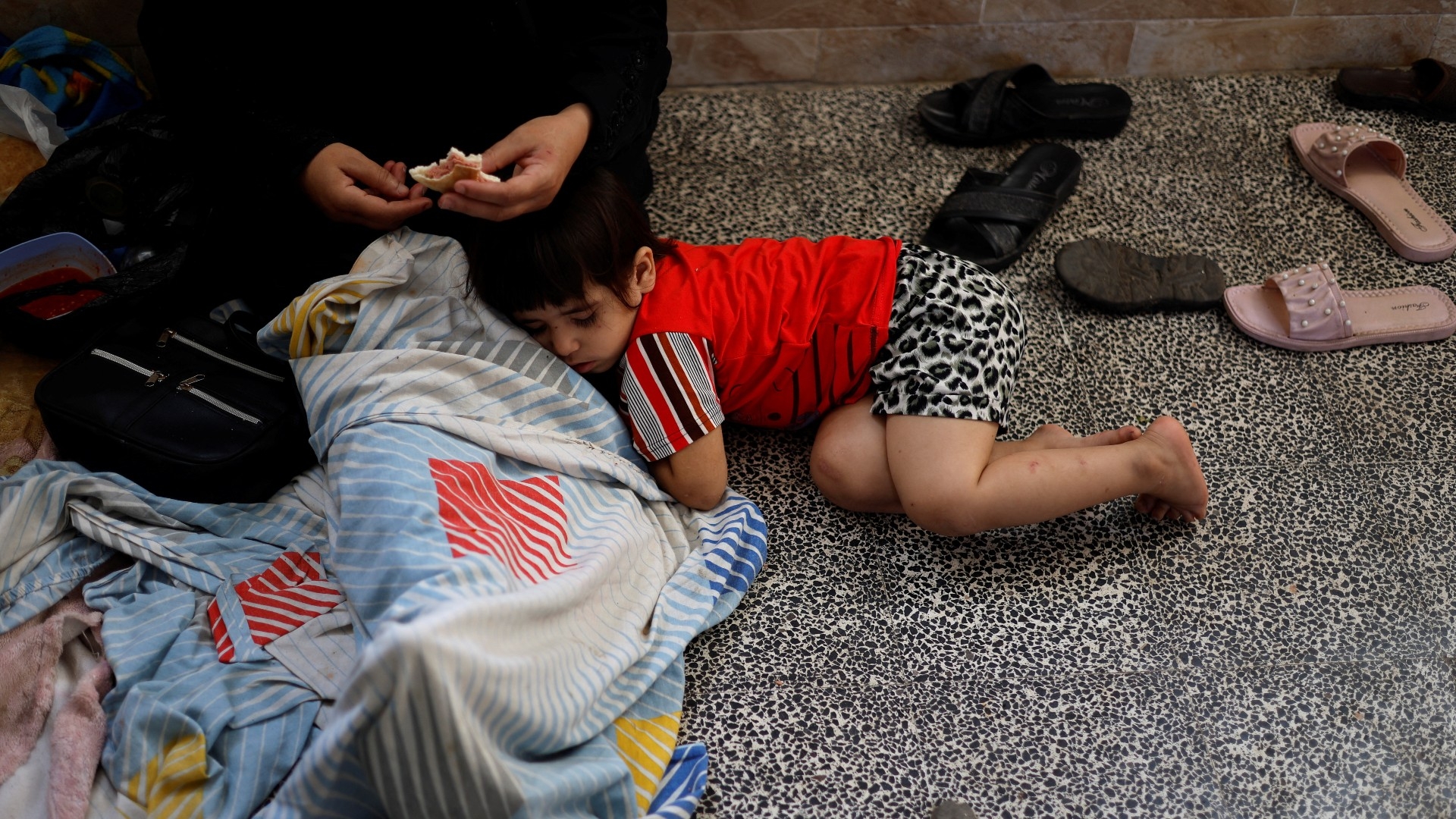
Throughout the Gaza Strip, classrooms are packed with distressed Palestinians.
Schools run by Unrwa, the UN agency for Palestinian refugees, have become shelters for Palestinian families displaced by relentless Israeli bombing and an order to flee Gaza's north.
In an Unrwa school in al-Maghazi, a refugee camp in central Gaza for Palestinians displaced by the 1948 Nakba, the situation is dire.
Around 5,870 people, about 1,100 families, are taking shelter here. Of these, people running the shelter say, just over half are male.
Displaced Palestinians began taking shelter here in the war's earliest days, when a heavy Palestinian attack on Israel was met with ferocious Israeli bombardment. Around 1,300 Israelis were killed by the attack on 7 October, with more than 2,300 Palestinians slain by subsequent Israeli air strikes.
New MEE newsletter: Jerusalem Dispatch
Sign up to get the latest insights and analysis on Israel-Palestine, alongside Turkey Unpacked and other MEE newsletters
The first people to flee to this Unrwa school were from the eastern part of al-Maghazi, a place that has faced intense air strikes because of its proximity to the boundary between Gaza and Israel.
Yet since Friday, when the Israeli army told all 1.1 million residents of northern Gaza to move south at risk of death, the number of displaced in al-Maghazi and its school has swollen. The UN said 400,000 Palestinians had been displaced even before the Israeli expulsion order.
Umm Yousef came here from al-Shati camp, which is by the sea.
"Now it has become more dangerous, and living there meant living in constant fear. Rockets fell around us day and night, and the sky was filled with the ominous hum of aircraft. We were warned to flee, so I took my children and left for al-Maghazi," she told Middle East Eye.
Tens of thousands of Palestinian families were heading south on Saturday using Salah al-Din Road, one of two routes the Israelis had told them to use.
Follow Middle East Eye's live coverage for the latest on the Israel-Palestine war
"The scene resembled a mass migration: trucks filled with families, mattresses, and the sounds of children," Umm Yousef said.
But as they travelled down it, planes began bombing around them.
A flatbed truck carrying dozens of people was hit, with the Hamas movement that controls the Gaza Strip saying 70 Palestinians, mostly women and children, were killed by an Israeli strike. Israel claims it was a Hamas attack, though Umm Yousef, who witnessed the event, said a plane struck the truck.
"My children saw the blood, and their faces were filled with horror. They saw the charred cars, bloodstained trucks, and, worst of all, a truck filled with children and their mattresses drenched in blood. We saw it with our own eyes," she said.
Umm Yousef said the journey was a "painful reminder" of Palestine's history of displacement.
"We might not have witnessed the events of 1948, but now we were living a similar story. Without water, electricity or food, we were left with the oppressive heat and the cold ground for beds.
"My children were hungry, terrified and confused. As rockets exploded nearby, my daughter Malak, who's only 12, clung to me, crying, 'Mum, I don't want to die'."
Supplies dwindling fast
Many Palestinians come to Unrwa schools not only for shelter, but sustenance too, desperately needed since Israel has laid a complete siege on Gaza, cutting off supplies of food, water, power and the internet.
With many Palestinians living off daily wages and informal work, thousands have had their sources of income suddenly cut off.
At the schools, basic food items are distributed. But supplies are dwindling at a terrifying rate. On Sunday, each person in the al-Maghazi school was supposed to be supplied with a meal of bread and canned tuna, but Unrwa wasn't able to get hold of any bread, as its supplier is in western Gaza, where the bombing has been particularly severe.
Both drinking water and water suitable for washing are running out fast. Taps now supply only contaminated water for about half-an-hour a day, and supplies are exhausted almost as soon as they're acquired.
Now the nearly 6,000 people at al-Maghazi school are becoming desperately hungry and thirsty.
Nour, a 39-year-old mother of two, came to the school from her home near the boundary with Israel.
"Our neighbor's house, which belonged to a doctor, was bombed. Debris from that explosion damaged our house, and the windows shattered onto my children," she told MEE.
"Our house is now ruined, and my husband was almost killed by the shrapnel."
'They tell me: 'Mamma, we want to eat, we need water'. Where can I get that for them? Where? Tell me where?
- Nour, mother of Adham, 12, and four-year-old Hanan
Nour is now struggling to provide for her son Adham, 12, and daughter, four-year-old Hanan.
"Their pleas of hunger break my heart, and I can't provide for them. We came to this place hoping for some respite and food, but my children are starving. I don’t want my children to die. I don’t want them to die. I can't take it anymore," Nour said.
"They tell me: 'Mamma, we want to eat, we need water'. Where can I get that for them? Where? Tell me where? I'm suffocating. I lived before in hunger, I suffered, it was terrible, and now it's unliveable."
Nour, who suffers from diabetes, has breast and thyroid cancer, and was due to have surgery at the end of the month. Now all Gaza's hospitals are overwhelmed with the dead and wounded, and some have even been hit by air strikes.
Nour's husband, too, has diabetes and lung issues, and is recovering from a stroke.
"I'm at a point where I pray for God that a missile would take me so that my children might have a better future," she said.
"My son began wetting himself out of fear, and I couldn't find any pants for him to change into. I found a pair of in the garbage and they were torn. All the kids laughed at him."
One doctor, one nurse, 6,000 people
Since the Israeli order to flee northern Gaza, Unrwa has sent out emails instructing all its staff to head south.
Any employee who remains in northern Gaza, including Gaza City, does so at their own risk, it says.
So far, Unrwa aid has been just enough to keep these people alive. The agency is using existing stock because Israel is refusing to allow any new supplies into Gaza. The al-Maghazi school shelter has 21 people working at it in shifts, including cleaning staff and the principal.
One serious issue is the lack of sanitary products. Nappies and baby milk formula are out. Women's sanitary products are not available.
Unrwa has set up a health point in the school, with a single doctor and nurse serving nearly 6,000 people from 9am to 2pm. If there is an emergency outside these hours, there’s little they can do.
The healthcare situation is extremely concerning. The health point is essentially a place to provide medicine for people with chronic illnesses, but many are not available.
Umm Yousef said: "I plead with the world, with those who still have compassionate hearts, the Arab nations and human rights organizations: have mercy upon the Palestinian people's suffering and act. We desperately need a humanitarian truce. We need your help; we need your compassionate heart."
Middle East Eye delivers independent and unrivalled coverage and analysis of the Middle East, North Africa and beyond. To learn more about republishing this content and the associated fees, please fill out this form. More about MEE can be found here.


